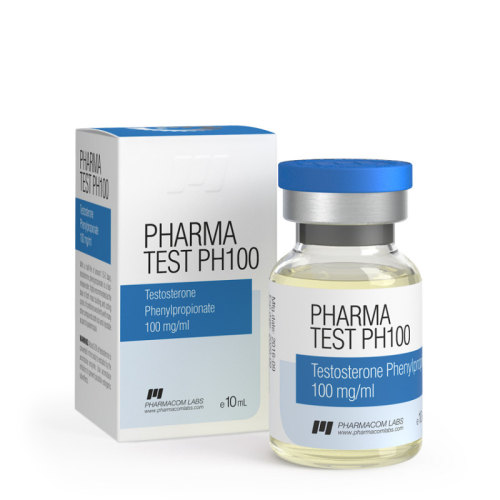Pharma TEST PH100
- Brand: Pharmacom Labs
- Product Code: Pharma TEST PH100
- Availability: In Stock
-
$35.00
ACTIVE HALF-LIFE
2-3 days
CLASSIFICATION
Anabolic Steroid
DOSAGE
Men 300-700 mg/week
ACNE
Yes
WATER RETENTION
Low
HBR
No
HEPATOTOXICITY
No
AROMATIZATION
Yes
CARRIER OIL
Grapeseed Oil
MANUFACTURER
Pharmacom Labs
WAREHOUSE
International Warehouse 3
SUBSTANCE
Testosterone Phenylpropionate
,
PHARMA TEST PH100 (Testosterone Phenylpropionate) is regarded as one of the most effective anabolic steroids for building mass. It is highly suggested as a foundation for both bulking and cutting cycles. Testosterone contributes to overall health and wellness by boosting libido, energy levels, immunity, facilitating fat loss, promoting the development and maintenance of lean muscle, preventing osteoporosis (loss of bone density), and potentially offering protection against heart disease. It works well with a variety of other oral and injectable substances as part of a powerful stack.
Although its half-life is slightly longer—around 1 to 1.5 days—compared to PHARMA TEST P, its characteristics and biological effectiveness are significantly greater.
With a half-life of approximately 2 to 3 days, it is a fast-acting ester, ideal for shorter cycles and reducing water retention.
Synthetic testosterone was first produced in 1935 by German biochemist Adolf Butenandt and Swiss chemist Leopold Ruzicka, both of whom were awarded the Nobel Prize for their accomplishments.
Testosterone is the main male sex hormone, directly influencing the development of the testicles and prostate, while also significantly impacting muscle tissue, bone density, and strength. Additionally, testosterone is crucial for numerous bodily functions, contributing to general health, vitality, increased libido, energy, immunity, and the prevention of osteoporosis, as well as potential heart disease protection. Maintaining elevated testosterone levels in older men has been linked to improvements in various factors that may lower cardiovascular disease risk, such as increased lean body mass, reduced visceral fat, lower total cholesterol, and better glycemic control. It not only determines male-female differences but also regulates thromboxane A2 receptor populations in megakaryocytes and platelets, affecting platelet aggregation. Furthermore, testosterone plays a role in behavior, mood, and romantic relationships, and reports suggest it can even influence career decisions. Research indicates that testosterone affects key cognitive functions, such as attention, memory, and spatial awareness. Preliminary findings suggest that low testosterone levels may pose a risk for cognitive decline and potentially Alzheimer's dementia, making a strong case for testosterone use in anti-aging treatments.
Athletes often prefer testosterone for its ability to significantly enhance muscle mass and strength. As a naturally occurring hormone, it is the most widely used anabolic steroid and forms the basis of most cycles and stacks.
In bodybuilding, testosterone is almost exclusively administered as an injectable ester or suspension due to its low oral bioavailability and the impracticality of high-dose transdermal or sublingual delivery. All forms of testosterone share the same active ingredient—testosterone—combined with an ester that dictates the release rate and duration of the compound's activity. In summary, long esters release testosterone slowly into the bloodstream, maintaining stable hormone levels over time without causing peaks.
It is important to note that in men, about 5% of testosterone undergoes 5α-reduction to produce the more potent androgen dihydrotestosterone (DHT), also known as androstanolone. Additionally, approximately 0.3% is converted into estradiol, the principal female hormone, via the aromatase enzyme found in the brain, liver, and fat tissues. Therefore, it is crucial to take appropriate precautions to mitigate potential side effects. We recommend conducting blood tests and using aromatase inhibitors during the cycle (anastrozole is preferred) and selective estrogen receptor modulators (SERMs) like clomifene or toremifene during post-cycle therapy (PCT).

